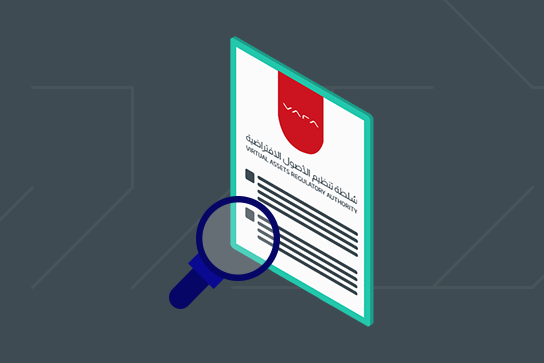
What Is Dubai’s Virtual Assets Regulatory Authority (VARA)?
Since 2016, Dubai has been positioning itself as a virtual asset hub for the world and considers itself a progressive market. It is important to note that the United Arab Emirates consists of 7 emirates, each with its own emir. The regulations discussed below apply to Dubai only.
Dubai has adopted the Financial Action Task Force’s (FATF’s) Recommendation 16 (Travel Rule) along with additional regulations and guidelines of its own, including the establishment of the Dubai Virtual Assets Regulatory Authority (VARA). VARA is authorised by Law No. [4] of 2022 Regulating Virtual Assets in the Emirate of Dubai to regulate Virtual Asset Service Providers (VASPs) in the Emirate. A virtual asset is defined as:
A digital representation of value that may be digitally traded, transferred or used as an exchange or payment tool, or for investment purposes. This includes Virtual Tokens, and any digital representation of any other value as determined by VARA. [Law No. (4) of 2022 Article (2)]
The Emirate has provided a comprehensive list of guidelines to remain technology-agnostic, and offer complete consumer protection and socio-economic stability while furthering itself as a global crypto hub.
What Is Dubai’s Virtual Assets Regulatory Authority (VARA)?
What Are VARA’s Objectives?
VARA has 5 main objectives
Promote Dubai as the epicentre for regional and international virtual assets and related services, and develop the digital economy to ensure the Emirate is a global competitor.
Encourage innovation and empower investors within this sector by increasing awareness and education.
Attract investments and companies to operate and set up their base in the Emirate.
Encourage a shared commitment to create effective, specialised legislation for the protection of investors and to stop illegal practices in collaboration with relevant organisations.
Provide the laws, guidelines, and standards necessary to police, monitor, and control virtual asset platforms, VASPs, and all other aspects of virtual assets.
What Falls under VARA’s Scope
As per Law No. (4) of 2022 Regulating Virtual Assets in the Emirate of Dubai, VARA is responsible for regulating, supervising, and managing virtual asset services. All virtual asset services provided within the Emirate - excluding the Dubai International Financial Centre but including developing and free zones - will fall under VARA’s scope.
VARA will have the power to:
define all virtual asset activities, business, practices, services, and products that are prohibited in Dubai
develop regulations and general policies for the regulation of virtual assets
classify and define the activities mentioned below, and define the regulations and rules required to govern them
extend this list to include any activity, business, practice, or service related to virtual assets
Moreover, the following Activities require permits to operate in the Emirate and fall under VARA’s supervision:
“provision of Virtual Asset Platform operation and management services;
provision of services for the exchange between Virtual Assets and national or foreign currencies;
provision of services for the exchange between one or more forms of Virtual Assets;
provision of Virtual Asset transfer services;
provision of Virtual Asset safekeeping, management, or control services;
provision of services related to Virtual Asset Wallets; and
provision of services related to offering, and trading in, Virtual Tokens”.
According to Chapter 3, Article 15, without a valid permit, no person can conduct the Activity* in Dubai. Additionally, the crypto business must be based in Dubai and approved by an Emiratis commercial licensing authority to perform these activities. No activities can commence before meeting the correct licensing and approval criteria.
*The Activity is defined as “any of the activities that require a Permit from VARA and are subject to its oversight”, as stated in Article (16) of this Law.
VARA’s New Definitions
VARA defines a virtual asset as a “digital representation of value that may be digitally traded, transferred, or used as an exchange or payment tool, or for investment purposes”. This definition includes virtual tokens (defined below) and all other digital representations VARA has determined to have value.
It is interesting to note that VARA then draws specific attention to virtual tokens, stating that it falls under the definition of virtual assets. It further defines it as a “digital representation of a set of rights that can be digitally offered and traded through a Virtual Asset Platform”.
Like the Markets in Crypto Assets Regulation (MiCA), VARA has also redefined VASPs and stablecoins. Below is a comparison between VARA’s and MiCA’s approaches.
Virtual Asset Service Provider:
Under VARA, a VASP is a person authorised - by VARA - to conduct the Activity*. Activities include:
provision of Virtual Asset Platform operation and management services;
provision of services for the exchange between Virtual Assets and national or foreign currencies;
provision of services for the exchange between one or more forms of Virtual Assets;
provision of Virtual Asset transfer services;
provision of Virtual Asset safekeeping, management, or control services;
provision of services related to Virtual Asset Wallets; and
provision of services related to offering, and trading in, Virtual Tokens.
MiCA defines a crypto asset service provider as “any person whose occupation or business is the provision of one or more crypto-asset services to third parties on a professional basis.”
As per MiCA, crypto-asset services include
the custody and administration of crypto assets on behalf of third parties,
the operation of a trading platform for crypto assets,
the exchange of crypto assets for fiat currency that is legal tender,
the exchange of crypto assets for other crypto assets,
the execution of orders for crypto assets on behalf of third parties,
the placing of crypto assets,
the reception and transmission of orders for crypto assets on behalf of third parties,
providing advice on crypto assets.
When comparing VARA’s definition of a VASP to MiCA’s CASP, the gist of the definitions is the same, but VARA does not mention providing advice on crypto assets in its list.
Stablecoins:
VARA uses the term fiat-referenced virtual assets. A fiat-referenced virtual asset is a token pegged to one or more fiat currencies. Furthermore, it can be digitally traded, and function as a medium of exchange; a unit of account; and/or a store of value, but does not have legal tender status in any jurisdiction.
VARA further points out that it is not issued or guaranteed by any government, and only the community of users of the fiat-referenced virtual asset agrees to carry out the previously mentioned functions.
MiCA, on the other hand, has done away with the term stablecoin, instead opting for asset-referenced tokens (ARTs) and electronic-money tokens (EMTs). An ART is a cryptographic token whose value can be pegged to more than 1 fiat, physical asset, cryptocurrency or combination of all 3, for example, PAX Gold. Whereas an EMT is pegged to a single fiat currency, like USDC. EMTs are similar in meaning to stablecoins.
What Isn’t Covered by VARA?
VARA’s influence only covers the Emirate of Dubai; the remaining UAE and the Dubai International Financial Centre do not fall under its scope.
Additionally, VARA does not explicitly mention the regulation of Non-Fungible Tokens (NFTs) in any of its Rulebooks.
The VARA framework consists of 13 Rulebooks, downloadable content on the Regulatory on Marketing Advertising and Promotions related to Virtual Assets, and penalties for non-compliance.
The end goal of VARA is to provide a level playing field for financial institutions and VASPs across the Emirate and leverage itself as a global hub for all crypto investors, businesses and related fintechs.



